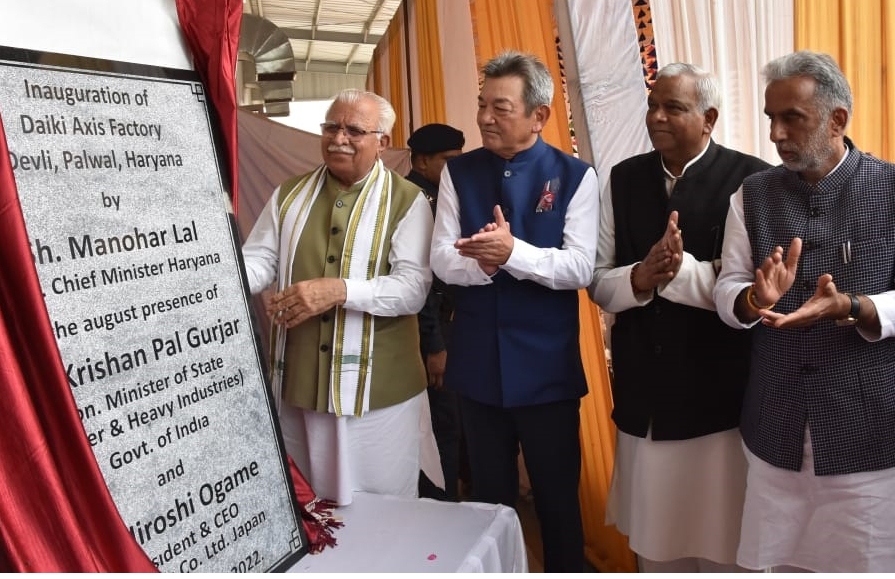Haryana Chief Minister Manohar Lal Khattar on Friday said with the changing nature of traditional farming, farmers can earn more income by adopting new technologies in the agriculture sector.
Interacting with the farmers and agricultural experts after inaugurating Dhanuka Agritech Research and Technology Center in Palwal district today, the CM said with this objective, the government is taking concrete steps for promoting research in the agriculture sector, which will prove beneficial in the economic upliftment of the farmers.
Advertisement
Khattar said instead of paddy, the government is giving preference to 3M- moong, mustard and maize. In this newly built research centre, 11 types of laboratories related to agriculture have been built, through which farmers will be helped in cultivating improved varieties. The farmers will get benefit from this training centre.
The CM said the government is also encouraging farmers to adopt horticulture, fisheries, animal husbandry and other options. Today the use of drones is increasing continuously. The government has set up Drone Imaging and Information Services of Haryana Limited (DRIISHYA) for using drones in agriculture, mining sector and for traffic, he added.
Meanwhile, Khattar said the state government is working on the 3R (reduce, recycle and reuse) principle for water management. “Positive steps are being taken in the direction of water conservation by formulating a policy for treated waste water. State government’s investment-friendly policies have made Haryana the first choice for foreign investors,” the CM said after inaugurating the Daiki Axis factory in village Devli at Palwal district on Friday.
He said the newly inaugurated plant has been set up with an investment of Rs 200 Crore would prove to be an important step in the development of the region besides becoming a partner in the direction of water conservation.
The CM said in the industry sector, the government has formulated a policy for treated waste water. He said that in the coming times, the government is focused on improving the water quality and is working with social participation in the field of water management. He said that up to 85 per cent subsidy is being given by the government to the farmers adopting micro-irrigation.









